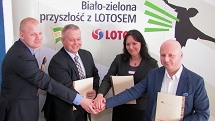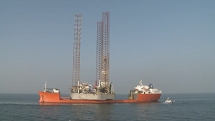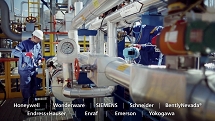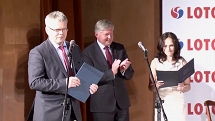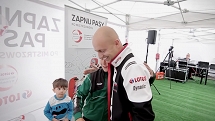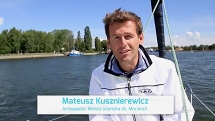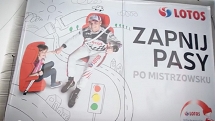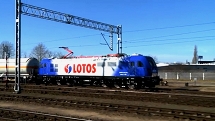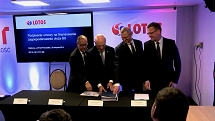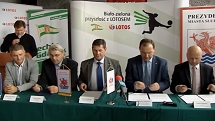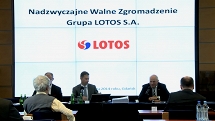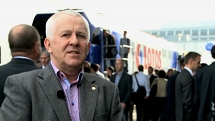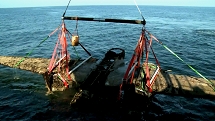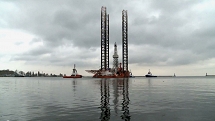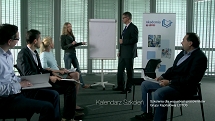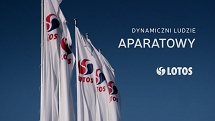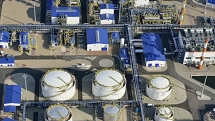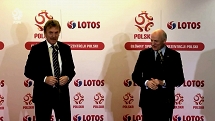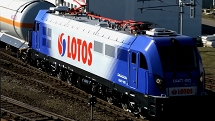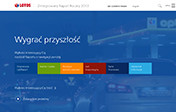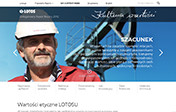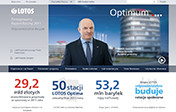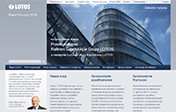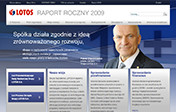-
Financial information
The past year ushered in a series of challenges for the companies in the fuel sector. The decisions made by us have demonstrated that we are able to take rapid steps to adapt to a demanding environment and ensure the desired profitability for our projects.
-
Segment performance
The segmental management model we have implemented enhances management efficiency, delivering cost and revenue synergies across the organization.
-
Letter from the Vice-President of the Board
2014 ushered in a series of challenges for the companies in the fuel sector. The decisions made by the LOTOS Group have demonstrated that we are able to take rapid steps to adapt to a demanding environment and ensure the desired profitability for our projects.
-
Business environment
The key factor that had a strong impact on both the global and Polish petroleum markets in 2014, with significant consequences for the LOTOS Group’s performance, was the price of crude oil, which also determined the price of petroleum products.
-
Strategic objectives
The LOTOS Group’s Strategy is designed to strengthen our position as a strong, innovative and efficient business which plays a major role in ensuring national energy security.
-
Business model
Our operations consist in crude oil production and processing, as well as wholesale and retail sale of petroleum products, among which are: fuels (unleaded gasoline, diesel oil and light fuel oil), heavy fuel oil, bitumens, aviation fuel, naphtha, propane-butane LPG and base oils.
-
Risk and opportunities
At the LOTOS Group, we identify a range of diverse risks, which may affect all areas of our business. The key risks in terms of their impact on our operations are the financial risks as well as risks affecting the exploration and production area. In the analysis of the risks, we also factor in issues related to sustainable development.
-
Key data 2014
With revenue of ca. PLN 28.5bn in 2014, we rank fourth in the group of 500 largest businesses in Poland.

Marketing segment
1. Risk of crude supply interruptions or reduced crude supply
As the output from its own production assets does not fully cover its processing feedstock requirements, Grupa LOTOS relies on crude oil purchased from external suppliers. Approximately 92% of oil supplies are sourced from Russia. Crude oil is supplied via the network of pipelines operated by PERN (the Druzhba and Pomorski pipelines) and by sea through the Naftoport oil terminal; in 2014 we also made our first purchase of crude oil shipped by rail. Considering the above, the key risks that may cause uncertainty in crude oil supply include the political situation in oil exporting and transit countries, as well as the availability and the working condition of transport infrastructure.
The possible causes of disruptions to Grupa LOTOS’ crude oil supplies include:
- technical failures, including failures of the pipeline system used to supply crude oil, terrorist acts, acts of sabotage, riots, wars, natural disasters, adverse weather conditions and other force majeure events,
- irregular crude oil deliveries leading to a temporary reduction in work-in-process inventory, which in turn is likely to affect the refinery’s throughput volumes.
We are consistently pursuing our policy to diversify the directions and sources of our crude oil supplies by focusing on:
- security of supplies − through progressive expansion of its presence on the international oil markets, regular contracting of various crudes transported by sea, creating conditions to increase the share of such crudes in total supplies to the refinery in case of any disruption of supplies from the main import market, and expanding the share of own production in total feedstock volumes,
- improvement of competitive position − by fully capitalising on the coastal location of our refinery in Gdańsk and the possibility of sourcing crude supplies through two independent channels: Russian oil through the Druzhba Pipeline and various types of oil available through Naftoport (an offshore oil terminal),
- use of crude oil transport by rail, with new crude oil rail unloading stations built at the refinery in 2014.
An appropriate selection of crude types and supply directions is a result of continuous efforts to maximise the integrated margin.
2. Risk of changes in margins on product sale
The principal risk factors include progressing market consolidation leading to intensified price competition on the Polish fuel market, and the rapidly changing global macroeconomic environment. In order to mitigate this risk, we are continuously refining our tools for monitoring variables affecting prices and margins. In retail sales, we are pursuing market diversification, including diversification into segments less prone to competition-induced margin erosion, as well as other initiatives aimed at building lasting relationships with customers.
3. Risk of decline in domestic demand
Certain macroeconomic factors, such as slow economy, declining industrial output and investment, and high unemployment, have been driving down fuel consumption in Poland since 2012 while at the same time an increased activity of the grey market, in which fuel is sold, is observed. Diversification of the available distribution channels, implementation of a pro-active pricing policy for price-competitive products, and optimisation of operating costs are the key elements of the strategy aimed at minimising the impact of this risk on our operations.






